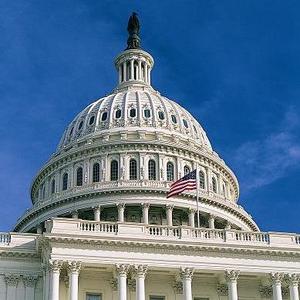Senators introduce bill to reinstate biodiesel tax incentive

February 13, 2014
BY The National Biodiesel Board
The National Biodiesel Board called on Congress to move swiftly on tax legislation after Sens. Maria Cantwell, D-Wash., and Charles Grassley, R-Iowa, introduced a bill to extend the expired biodiesel tax incentive for three years.
“On behalf of biodiesel producers across the country, we want to thank Sens. Cantwell and Grassley for their leadership on this issue,” said NBB Vice President of Federal Affairs Anne Steckel. “The biodiesel tax incentive has expired three times over the past five years, and each time it has severely disrupted production. By comparison, we know that at least $4 billion in incentives encouraging domestic petroleum production are built into the tax code. We need that same kind of stability for younger, cleaner industries like biodiesel and renewable diesel to compete.”
Advertisement
Advertisement
“This incentive clearly stimulates production and creates jobs at biodiesel plants across the country, and we urge the leadership of both parties to quickly take up this bill to ensure that we can continue the momentum that the biodiesel industry built last year with record production of almost 1.8 billion gallons,” Steckel added.
The $1-per-gallon incentive covers biodiesel, renewable diesel—a similar diesel alternative made with a different technology—and renewable aviation fuel. First implemented in 2005, it expired on Dec. 31, 2013. It also was allowed to lapse in 2012 and 2010.
Advertisement
Advertisement
The bill introduced Wednesday, S. 2021, would extend the tax incentive until 2017, providing the tax certainty the industry needs to gain access to capital and plan for production expansions and additional hiring.
Biodiesel—made from a diverse mix of resources such as recycled cooking oil, soybean oil and animal fats—is the first U.S. EPA-designated advanced biofuel to reach commercial-scale production nationwide. Produced in nearly every state in the country, the industry supported more than 62,000 jobs last year. In addition to the pending expiration of the tax incentive, the industry also is fighting a weak renewable fuel standard (RFS) proposal from the EPA, which recently proposed limiting biodiesel volumes under the RFS to 1.28 billion gallons for the next two years, a significant cut from last year’s production of 1.8 billion gallons.
Related Stories
CoBank’s latest quarterly research report, released July 10, highlights current uncertainty around the implementation of three biofuel policies, RFS RVOs, small refinery exemptions (SREs) and the 45Z clean fuels production tax credit.
The U.S. EPA on July 8 hosted virtual public hearing to gather input on the agency’s recently released proposed rule to set 2026 and 2027 RFS RVOs. Members of the biofuel industry were among those to offer testimony during the event.
The USDA’s Risk Management Agency is implementing multiple changes to the Camelina pilot insurance program for the 2026 and succeeding crop years. The changes will expand coverage options and provide greater flexibility for producers.
President Trump on July 4 signed the “One Big Beautiful Bill Act.” The legislation extends and updates the 45Z credit and revives a tax credit benefiting small biodiesel producers but repeals several other bioenergy-related tax incentives.
CARB on June 27 announced amendments to the state’s LCFS regulations will take effect beginning on July 1. The amended regulations were approved by the agency in November 2024, but implementation was delayed due to regulatory clarity issues.
Upcoming Events










